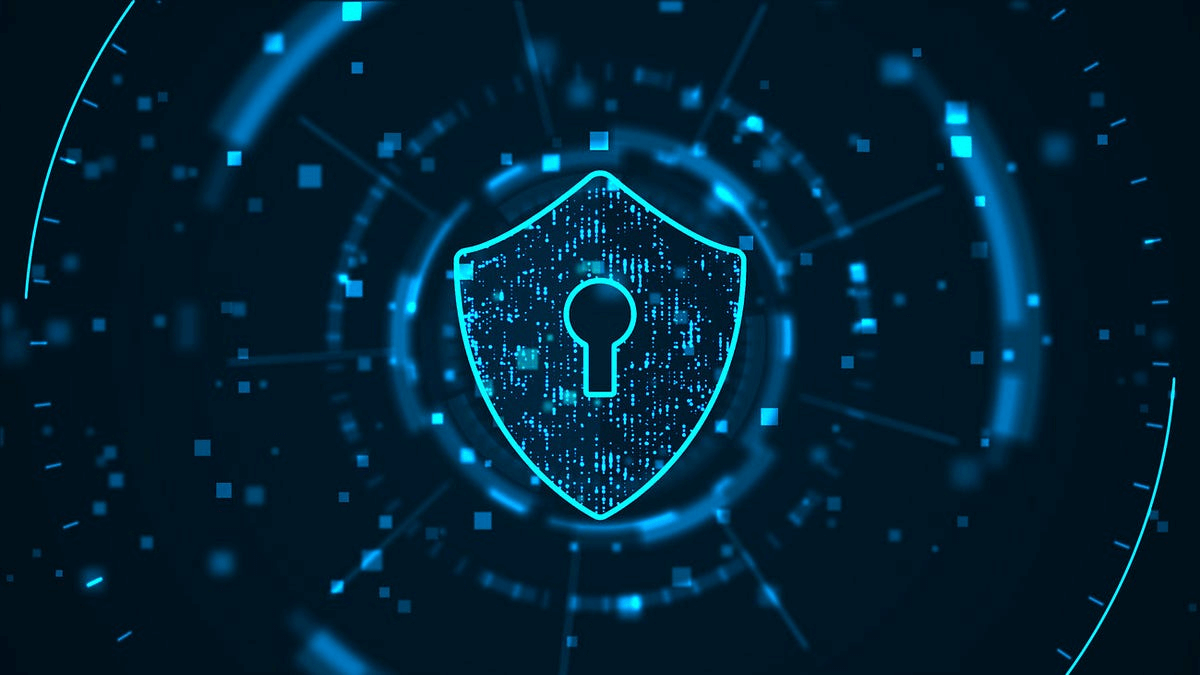Table of Contents
Ever wondered what superheroes in the cyber realm look like? They’re not clad in capes but in certifications—specifically, ICS Cybersecurity Certifications. Imagine being the silent guardian standing between chaos and order, where your arsenal is filled with knowledge and your shield is made of advanced cybersecurity protocols. Dive into the world where bytes battle baddies, and discover how you can become the next guardian of our industrial frontiers!
Why ICS Cybersecurity Certification is Not Just Important—It’s Essential

In a world increasingly reliant on technology, the sanctity of our industrial control systems (ICS) is more critical than ever. These systems power everything from electrical grids to water purification systems, forming the backbone of our essential services. But with great power comes great responsibility—and even greater risks. Cyber threats are evolving, becoming more sophisticated and more targeted, making outdated security measures as useful as a chocolate teapot.
To gain comprehensive insights into the cost associated with cybersecurity certifications, check out our detailed guide in The Complete Guide to Cybersecurity Certification Cost.
Understanding ICS Cybersecurity Certification
What exactly is an ICS Cybersecurity Certification? Think of it as your official superhero badge. It’s not just a piece of paper; it’s proof that you possess the prowess to protect critical infrastructure against digital threats. These certifications are offered by several esteemed bodies globally and come in various flavors, catering to different expertise levels from novice to guru.
Navigating the Path to Certification
The journey to becoming a certified ICS cybersecurity professional is rigorous but rewarding. It begins with understanding the basic prerequisites, which typically include a blend of educational background and practical experience in IT or cybersecurity fields. From there, candidates must choose their certification path wisely, often starting with foundational courses before tackling more specialized certifications.
Key Topics You’ll Master

An ICS (Industrial Control Systems) cybersecurity course isn’t just about learning how to defend against cyber threats—it’s about mastering the proactive measures needed to anticipate and mitigate potential vulnerabilities before they can be exploited. This kind of training is crucial because the stability and security of critical infrastructure, such as power plants, water treatment facilities, and manufacturing plants, depend on the robustness of their control systems. Let’s delve into the critical topics you will master during an ICS cybersecurity course.
ICS Fundamentals
Understanding the fundamentals of ICS is the foundation upon which all other knowledge in the field is built. ICS are pivotal in managing and controlling industrial environments, and the primary components of these systems include devices, systems, networks, and controls that ensure operational continuity. One of the key elements you’ll study is SCADA (Supervisory Control and Data Acquisition) systems, which play a significant role in monitoring and controlling distributed industrial processes.
SCADA systems are complex networks that gather data from sensors and instruments located at remote sites and send this data to a central computer which then manages and controls the data in real time. Learning about SCADA systems involves understanding their architecture, functionality, and the specific protocols they use, such as Modbus and DNP3, which are standards for communicating among controllers, sensors, and management systems within ICS.
Another fundamental aspect involves comprehending the network protocols used in industrial environments. Unlike typical corporate environments, industrial networks use protocols designed for high reliability and rapid recovery, such as EtherNet/IP, which supports real-time I/O messaging and device-level communication.
Threat Analysis and Risk Management
Threat analysis and risk management form a core part of any ICS cybersecurity course. This area involves identifying potential threats that could impact ICS, such as cyber-attacks, natural disasters, and system failures. The goal is to understand the likelihood and potential impact of these threats to develop effective strategies to mitigate them.
Students learn to conduct vulnerability assessments, which involve scanning systems to detect and address security vulnerabilities before attackers can exploit them. Risk management techniques also include the development of risk mitigation plans, which prioritize the risks identified and outline measures to minimize their impact. This proactive approach is vital in maintaining the safety and reliability of industrial operations, ensuring that even if a system is compromised, the disruption to operations and the resulting damage is minimized.
Network Security for ICS
Securing the network in an industrial environment is markedly different from securing a typical corporate network due to the critical nature of the operations involved and the potential consequences of disruptions. Network security in an ICS context focuses on securing both the hardware and software components of the network.
Students will learn about the deployment of firewalls specifically designed for industrial applications. These industrial firewalls are tailored to handle the specific protocols used in industrial networks and are robust enough to withstand the environmental challenges present in industrial settings. Intrusion Detection Systems (IDS) tailored for ICS are also covered, which are crucial for detecting and responding to potential intrusions in real time.
Segmentation is another critical security strategy taught in these courses. By dividing a network into smaller segments, cybersecurity professionals can isolate critical areas of the network, thereby limiting the spread of any potential intrusion and making overall management easier and more secure.
Incident Response
Incident response training prepares students for the worst-case scenarios where a cybersecurity breach has occurred. The focus here is on developing swift and effective response strategies to minimize damage and restore systems to normal operation as quickly as possible.
In an ICS environment, the impact of incidents can be particularly severe, leading to physical as well as economic damages. Thus, learning how to quickly identify and respond to incidents is crucial. This includes setting up effective communication channels that ensure all stakeholders are informed and involved in the response process as necessary.
Students are taught how to create and implement incident response plans that outline the roles and responsibilities of all participants, the steps to manage the incident, and the procedures for recovery and post-incident analysis. This analysis is essential to understand the attack vectors used and to strengthen systems against future attacks.

The Career Impact: Open Doors to New Opportunities
Why should you consider this certification? Because it opens doors—big, heavy, fortified doors that lead to careers in some of the most critical sectors like energy, manufacturing, and national defense. Certified professionals are not only in high demand but also tend to command higher salaries due to the specialized nature of their skills.
Real-Life Superheroes: Case Studies
Consider the case of a major power utility that fell victim to a sophisticated cyber-attack. The attack was thwarted by a team of quick-thinking certified professionals who detected and isolated the breach promptly, preventing potential widespread blackouts. These real-life scenarios underscore the critical importance of having trained professionals at the helm.
Staying Ahead: Advanced Strategies and Emerging Trends
The field of ICS cybersecurity is dynamic, with new challenges emerging as technology evolves. Staying ahead means keeping abreast of the latest security technologies, understanding emerging threats, and adapting to new protective measures swiftly.
Hands-On Training: Where Theory Meets Practice
Many certification programs offer hands-on labs and real-world simulations that mimic industrial cybersecurity challenges. These practical experiences are invaluable, ensuring that when the time comes, your responses are not just theoretical but reflexive.
Joining Forces: Community and Networking
No superhero is an island, and in the world of cybersecurity, community and networking are key. Engaging with forums, attending conferences, and participating in webinars can help build connections that might lead to job opportunities or collaborative projects.
Preparation is Key: How to Ace Your Certification
The road to certification is paved with dedication and hard work. Here are some tips:
-
Understand the Exam Structure: Knowing the format and types of questions can significantly reduce exam day anxiety.
-
Regular Practice: Make use of practice tests and simulation exams to build confidence.
-
Stay Updated: Keep your knowledge fresh with the latest cybersecurity trends and updates.
For a detailed roadmap to achieving career success in the field of cybersecurity, explore our insightful article on Cybersecurity Certification Path: Unlocking Career Success.
Conclusion: Your Gateway to Becoming a Cyber Sentinel
Ready to don your digital armor and safeguard our industrial arenas? Start your journey at ACSMI’s Cybersecurity Certification program—where you don’t just get trained; you get transformed into the cyber sentinel our industries rely on. With our comprehensive curriculum and hands-on labs, ACSMI offers unbeatable value, equipping you with the skills to master both foundational and advanced industrial security principles. Your path to safeguarding the future starts now. Secure your spot today and take one step closer to becoming an indispensable asset in the world of industrial security!
Facts About ICS Cybersecurity
-
The first known ICS cyberattack occurred in 2000, targeting a wastewater facility in Australia.
-
ICS systems were originally designed for operational efficiency and longevity, not security, making them vulnerable to modern cyber threats.
-
The infamous Stuxnet worm of 2010 targeted Iranian nuclear facilities and was one of the first instances of a weaponized digital attack on ICS.
-
According to industry reports, over 70% of industrial sites are still running outdated software prone to exploitation.
-
Cybersecurity jobs focusing on ICS are projected to grow by 25% over the next five years, outpacing many other sectors.
-
A significant percentage of ICS cybersecurity incidents are due to human error, underscoring the need for comprehensive training.
-
Advanced persistent threats (APTs) are increasingly targeting ICS due to their critical nature and potential for high-impact disruptions.
-
Many ICS cybersecurity professionals come from a military or industrial background, bringing a unique blend of skills to the field.
-
The average cost of a cybersecurity breach in the industrial sector can exceed $1 million, making proactive security measures a financial necessity.
-
Emerging technologies like machine learning and AI are being leveraged to predict and mitigate attacks on ICS more effectively.
FAQs
-
Who should pursue an ICS cybersecurity certification?
-
IT professionals, OT engineers, and cybersecurity enthusiasts aiming to specialize in industrial security should consider this certification.
-
-
How long does it take to complete an ICS cybersecurity certification?
-
Depending on the level and your background, it can take anywhere from a few months to over a year.
-
-
What are the costs involved in obtaining this certification?
-
Costs vary by program and level but investing in certification often pays off in terms of career advancement and salary uplift.
-
-
Can this certification be completed online?
-
Yes, many providers offer online courses and examination options, especially useful in today’s digital-first world.
-
-
How does this certification impact career advancement?
-
It significantly enhances career prospects, opening doors to senior roles in cybersecurity within various industries.
-
-
What are the renewal requirements for this certification?
-
Most certifications require renewal every three to five years through continued education or re-examination to ensure skills remain up-to-date.
-
-
How is ICS Cybersecurity Certification viewed globally?
-
It is highly respected and recognized globally, with certified professionals valued in both public and private sectors.
-
-
What are the prerequisites for enrolling in an ICS cybersecurity certification program?
-
Typically, a background in IT, networking, or cybersecurity is required, though some entry-level certifications may have more flexible prerequisites.
-

Leave a Reply